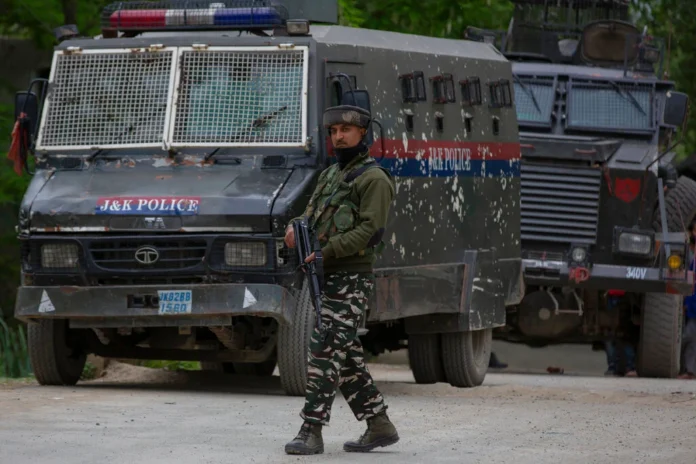The threat of military confrontation between nuclear-armed India and Pakistan is once again dominating headlines, following a terrorist attack in Indian-administered Kashmir that killed 26 Hindu tourists in Pahalgam on April 22.
India has squarely blamed Pakistan for the massacre, with Prime Minister Narendra Modi vowing to pursue the attackers and their alleged backers “to the ends of the earth.” Pakistan, in a familiar refrain, has denied any involvement.
But this time, many analysts say, something feels different — from the public outrage and strategic response options to the heightened domestic and international stakes.
A Flashpoint Reignited
The region of Kashmir, long contested by India and Pakistan, has been a decades-old flashpoint, with both sides accusing each other of stoking unrest and supporting proxy militants across the Line of Control (LoC).
What has particularly shocked many Indians this time is the targeting of civilians — tourists, allegedly chosen based on religion — rather than soldiers or paramilitary personnel.
READ MORE: Myanmar Junta Accused of Hoarding Earthquake Aid as Local Groups Scramble to Save Lives
“It was targeted at a certain community [Hindus], threatening our secular fabric,” said retired Indian Army Lieutenant General Raj Shukla, calling the attack a “seminal moment” that demands a forceful response.
Eyewitness accounts suggest attackers identified Hindu victims before opening fire, a chilling detail that has amplified calls for retaliation from the Indian public and media.
‘It’s Time to Strike’
The Modi government has given the Indian armed forces “complete operational freedom” to decide on the timing and mode of response. Multiple experts told the ABC that military retaliation is highly likely.
“This is a crisis. It could be bloody, and it could be a long haul,” said Lt Gen Shukla.
“The time has come now to strike.”
Defense analyst Ajai Shukla warned that without a diplomatic or face-saving off-ramp, escalation may be hard to avoid.
“Unless something helps defuse tensions, there’s very little anyone can do,” he said.
What Makes This Different?
Unlike previous terror attacks, such as the Pulwama attack in 2019, this time civilians were deliberately targeted, and the victims were tourists — a constituency the Modi government has been eager to promote in its campaign to normalize Kashmir.
“This attack struck at the heart of what Modi’s government is trying to project in Kashmir,” said Professor Ian Hall of Griffith University. “Normalcy. Control. Safety. This has undermined that narrative completely.”
Moreover, experts say India’s military response could be more sophisticated this time.
“I would anticipate that we would see something new,” Hall said. “It’s entirely possible India uses sea-based missiles to strike targets deeper inside Pakistan.”
With Pakistan’s air defenses on high alert, the expectation is that India will surprise, avoiding previous playbooks that allow for diplomatic damage control.
Is Nuclear War on the Horizon?
While the specter of nuclear war looms whenever India and Pakistan clash, experts suggest nuclear escalation is highly unlikely — though not impossible.
India adheres to a “no first use” nuclear policy, while Pakistan maintains a “use if threatened” doctrine. Both sides have roughly equal nuclear arsenals (India: 172 warheads; Pakistan: 170).
“Between terror and the nuclear threshold, there’s a whole lot of space for conventional operations,” said Lt Gen Shukla.
Colonel Ajai Shukla added that global pressure would act as a deterrent to nuclear escalation.
“China would intervene on Pakistan’s side, while the US and Russia would act as honest brokers. Things would grind to a halt without a conclusive end.”
Domestic Politics Fueling Escalation
Domestically, Prime Minister Modi is under immense pressure to act decisively. His Hindu nationalist base, which forms a critical political pillar, is demanding strong retaliation.
“His support base is baying for war,” said Subir Sinha, a researcher at SOAS, University of London.
“If the response is too soft, he loses face. Too hard, and it risks international backlash.”
That political tension was echoed by Amber Shamsi, Pakistani journalist and editor at Nukta, who noted that while India’s evidence is circumstantial, the call for action is being driven more by sentiment than proof.
“The problem is the allegation is based on a pattern, not hard evidence,” she said.
“India is pointing the finger early, as it has in the past.”
Could This Follow the Balakot Playbook?
In 2019, India conducted air strikes on Balakot, targeting what it claimed was a terrorist training camp after the Pulwama suicide bombing. However, the operation was widely viewed as symbolic, with Pakistan denying casualties and retaliating with airstrikes of its own.
“The 2019 strikes were more performative,” said Shamsi. “India might try to go bigger this time, or repeat a similar move — calibrated but with higher stakes.”
The Pahalgam attack, however, could shift that calculus, as it challenges Modi’s image as the protector of India’s security and national pride.
What Role Could the World Play?
International actors are expected to intervene diplomatically if tensions rise too high.
The US, China, and Russia have all historically played balancing roles in India-Pakistan crises. But with geopolitical distractions elsewhere — including Ukraine and Taiwan — analysts worry that early diplomatic mediation might be delayed.
“The world can’t afford a South Asian war,” said Michael Kugelman, a Washington-based analyst.
“But global powers may wait too long to get involved.”
Looking Ahead
With both countries dug into hardened positions, another cross-border strike seems all but certain. The uncertainty lies in scale and response — and whether either side can find an offramp before wider conflict ensues.
“The escalation risks are limited — until they’re not,” Kugelman warned.
“This is one of the world’s most volatile borders. All it takes is one miscalculation.”
